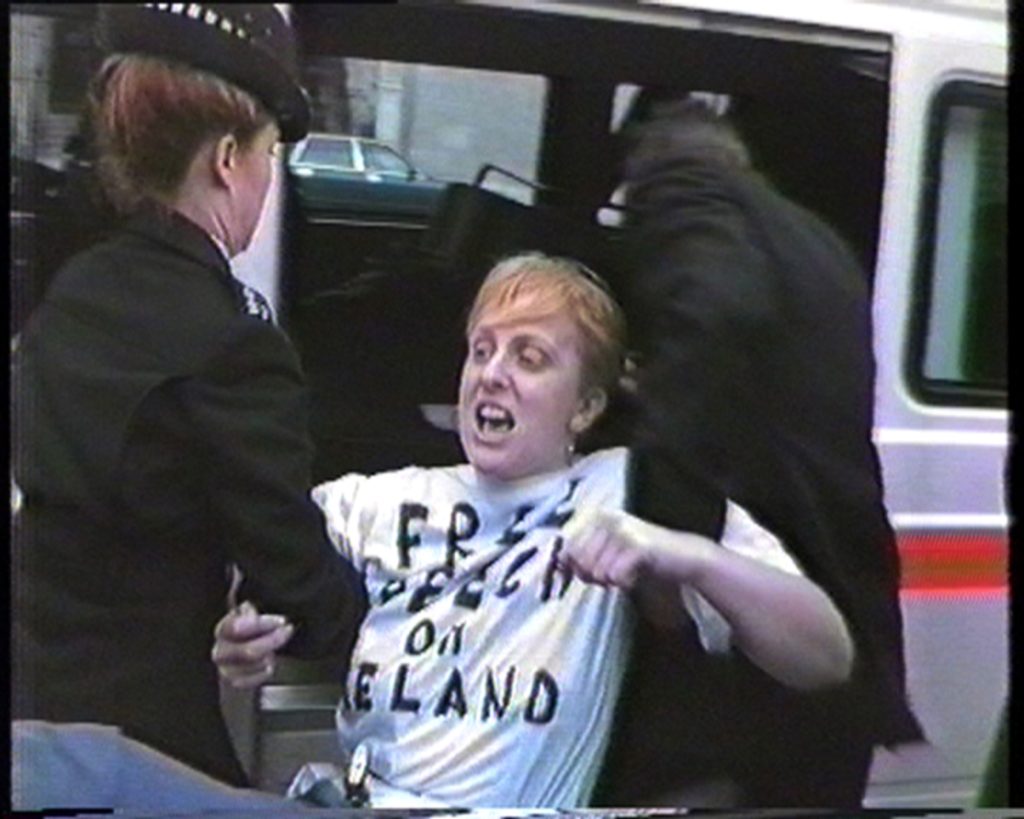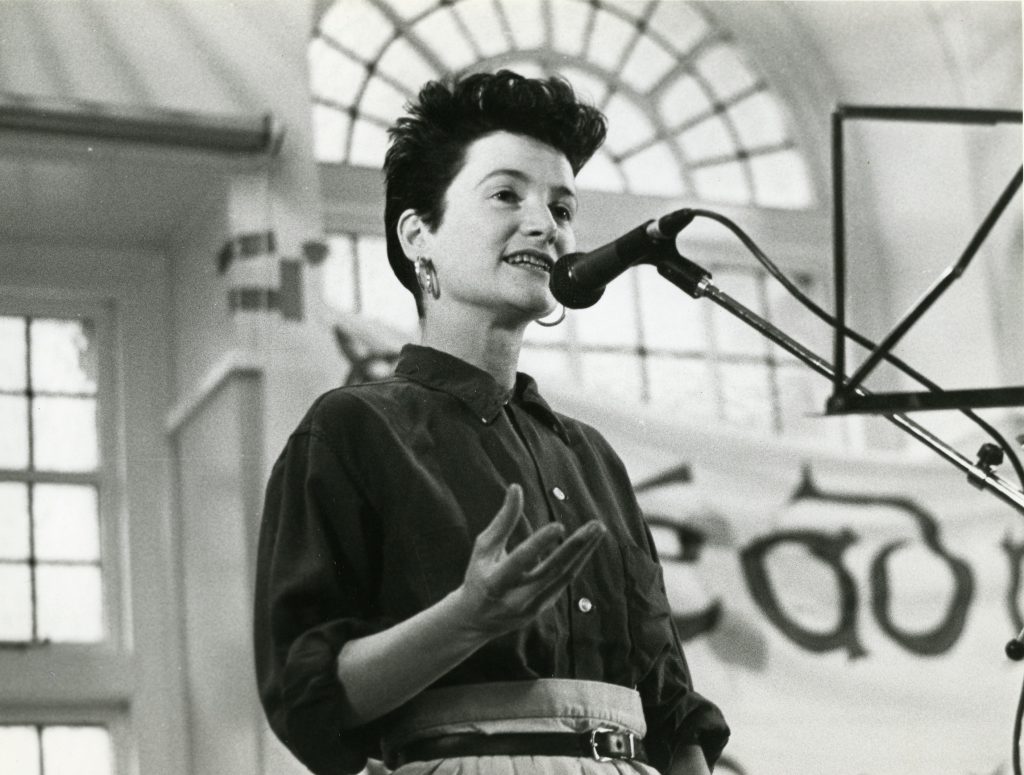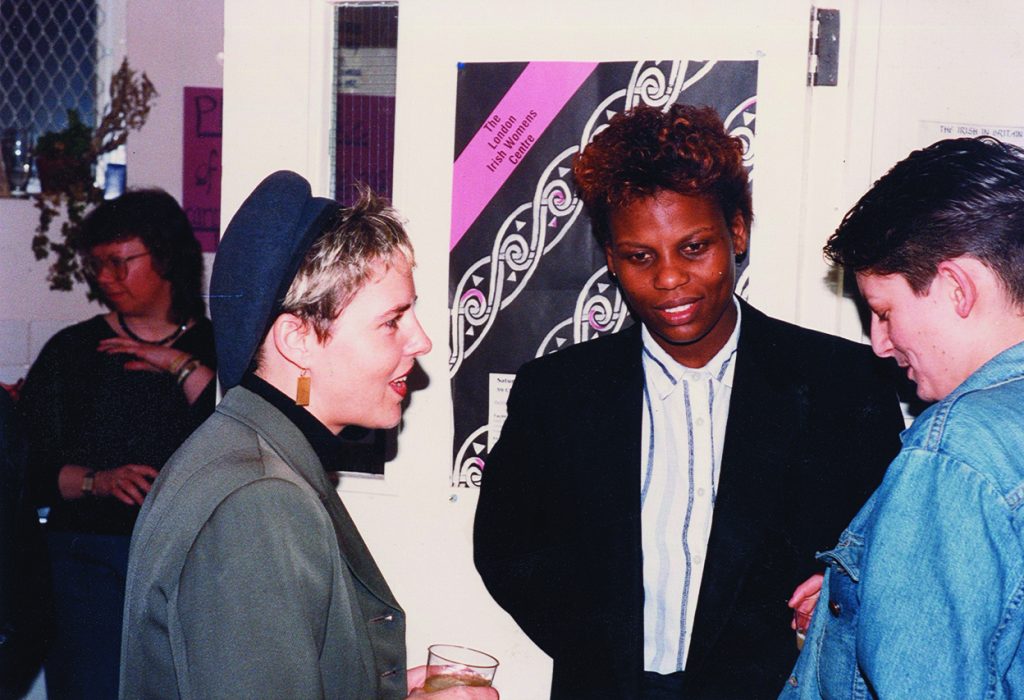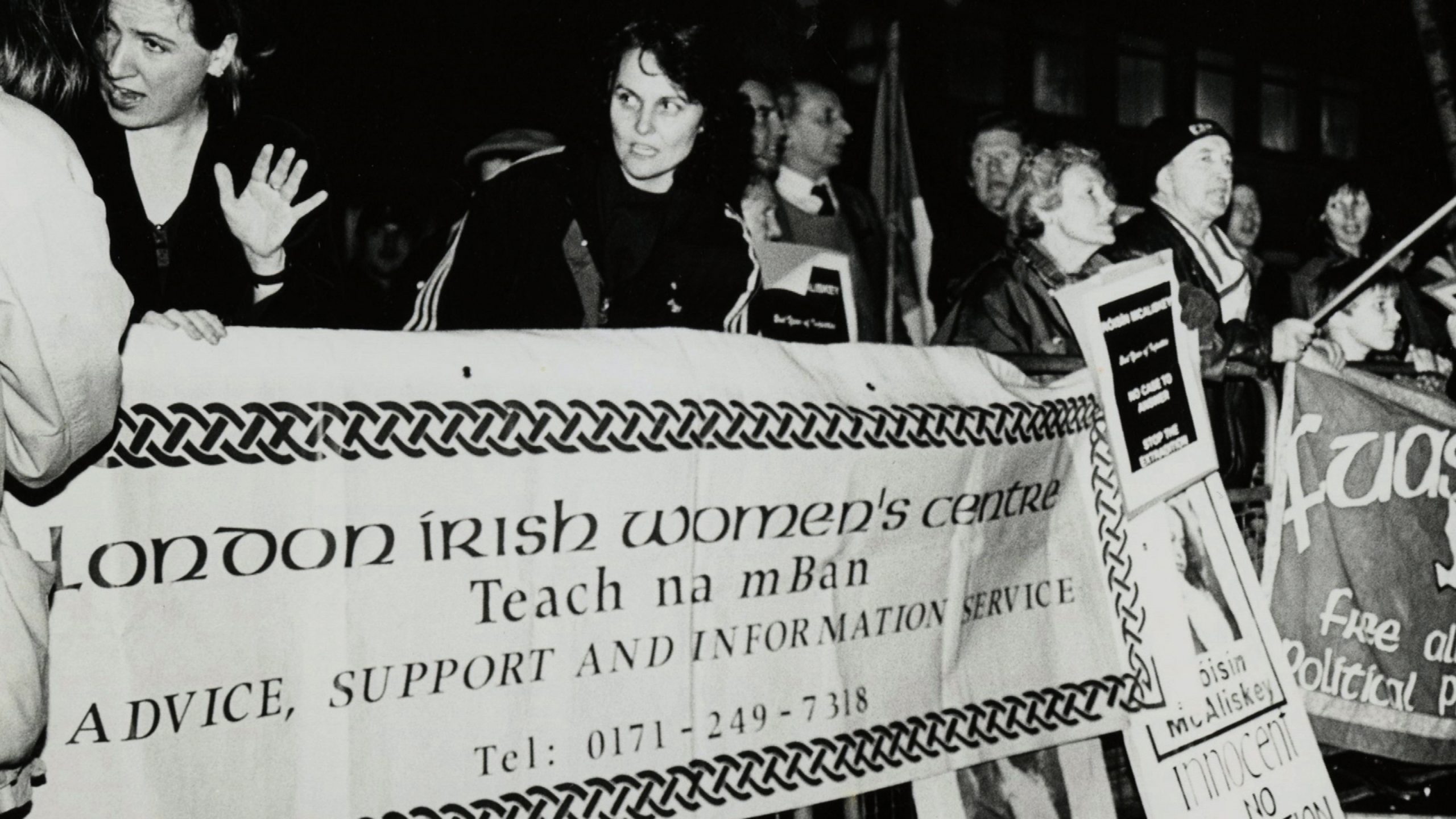by Marian Larragy
Breaking Ground (dir. Michelle Deignan), tells the story of The London Irish Women’s Centre that emerged in the 1980s and lasted almost 30 years.

Irish women were supporting each other, in accessing abortions, fleeing domestic violence and in campaigning on Northern Ireland, were active in the various (radical, revolutionary and socialist) feminist currents but came together around the idea of a centre for Irish women that could be both a hub to better organise and a respite from the many challenges we faced.

The 1981 hunger strikes had been a watershed. The children of the post war migrant Irish – a generation that had largely kept their heads down as the conflict in Northern Ireland deepened – were coming of age in an atmosphere of hostility to Irish people in public life. They wanted to know who they were and to make common cause with younger migrants who were not as socially conservative as earlier generations of migrants from Ireland.
People arriving from the Republic from the mid 70s onwards had had access to second and even third level education and the broad influence of a liberation theology that prioritised social justice over obsession with rigid sexual conformity. Many gravitated towards Irish organisations but avoided groups with a traditional Catholic ethos. Younger women, unmarried women who were pregnant, married women fleeing domestic violence, lesbians and other non-conformists gravitated to sources of support that had a less rigid social code. Some went on access courses, others got involved in feminist and alternative groups (such as those at the Rio cinema/bookshop in Dalston).
Women from Northern Ireland left the same joblessness and narrow social codes but also the danger and trauma of the conflict, the political problems of bigotry, discrimination and endemic poverty. As the film shows, they too were enabled to spread their wings through the centre’s activities.

Feminist practice of self-help and egalitarianism dominated the centre’s collaborative approach. In the film, Bronwen Walters work illustrates the extent of issues affecting the Irish in London. In the film, Ann Rossiter describes the centre as part of the alternative Irish community. [For more on this period, see the introduction to “Across The Water – Irish Women’s Lives in Britain, Lennon, McAdam & O’Brien, Virago 1988 ].
Throughout the 1980s in London, cuts to the welfare state and high rates of unemployment gave rise to a great deal of activism. The conflict in Northern Ireland, racism and the position of women in society were among the other big issues of the day. In London, the Greater London Council was encouraging egalitarian community organisations to influence policy.
The London Irish Women’s Centre was not universally supported by mainstream Irish organisations. Its release of the creativity and imagination of Irish women in London to articulate and address our needs but also to create the changes is appreciated more in retrospect (thanks to Michelle Deignan’s fantastic film) than it was during the time of its existence.

Marian Larragy is co-founder of the London Irish Feminist Network.
